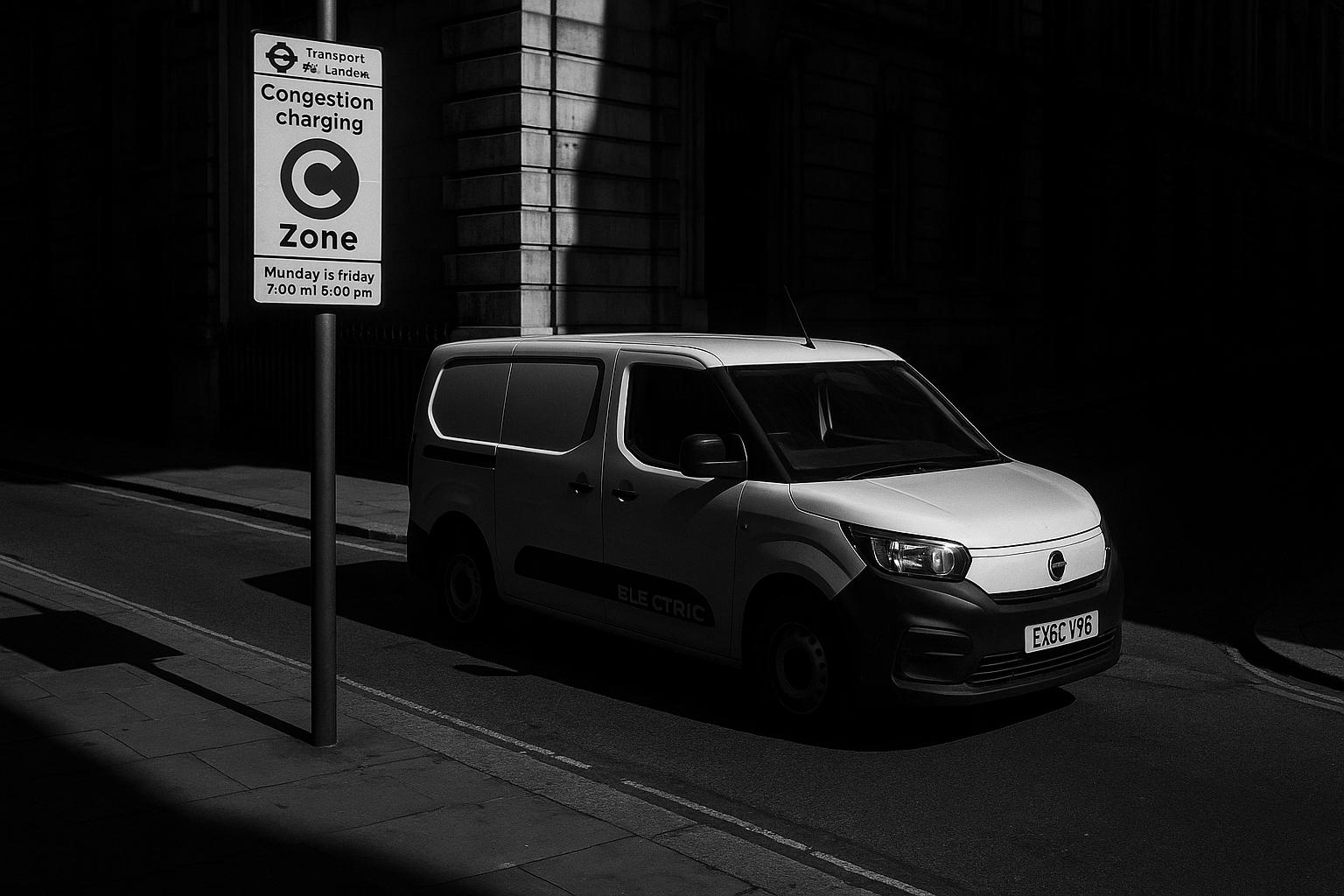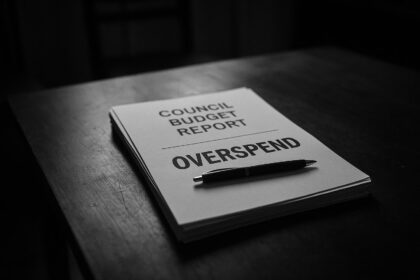TfL has proposed ending the 100% Cleaner Vehicle Discount on 25 December 2025, raising the daily Congestion Charge to £18 from 2 January 2026 and replacing the blanket EV exemption with phased discounts — 50% for eligible vans/HGVs and 25% for cars (falling further in 2030) — a move framed as needed to curb rising central‑London traffic but criticised for hitting small businesses and slowing EV adoption.
Transport for London has set out plans to end the 100% Cleaner Vehicle Discount on 25 December 2025 and replace it with a new, phased discount as part of wider revisions to the Congestion Charge. According to TfL’s consultation and a separate press statement, the daily charge would rise from £15 to £18 from 2 January 2026, while a “new Cleaner Vehicle Discount” would offer reduced concessions for zero‑emission vehicles rather than a blanket exemption. The proposals are framed as an attempt to curb rising traffic in central London while still supporting journeys that are harder to switch away from private vehicle use, such as commercial van trips. (TfL said this in its consultation materials and press release.)
From 2 January 2026 the draft scheme would give eligible electric vans, HGVs and quadricycles a 50% discount and electric cars a 25% discount, on the condition vehicles are registered for Auto Pay; TfL also proposes automatic eligibility checks using DVLA data to remove the need for a separate registration process. The consultation further sets out a second phase: from 4 March 2030 the discounts would be cut again, to 25% for vans and 12.5% for cars. TfL presents the staged approach as balancing continued support for electric vehicle uptake with the need to prevent exempt vehicles from swamping central London roads.
TfL says the change is necessary to preserve the Congestion Charge’s effectiveness: more than 112,000 vehicles currently benefit from the full discount, a figure the authority argues has contributed to rising central‑London traffic and pressure on public transport services. The body has paired the proposals with wider measures it says will ease the transition, including targeted scrappage support, and an ambition—set out by City Hall—for up to 40,000 EV charge points by 2030 to underpin longer‑term zero‑emission travel.
The plans have drawn criticism from elected representatives and campaigners who argue the move risks undermining EV conversions, particularly among small firms. Labour Assembly Member Elly Baker warned that cutting discounts for electric vans and small businesses could deter greener fleets and hurt livelihoods, while London Assembly member Caroline Russell acknowledged the staged removal had been signalled previously but urged more targeted help such as scrappage schemes, interest‑free loans and use of the GLA Green Finance Fund to support smaller operators and promote cargo‑bike alternatives.
Business groups and motoring organisations have also expressed concern about the financial hit to firms that have already invested in zero‑emission vehicles. Independent analysis, reported by industry media following a Freedom of Information request, estimated that replacing the full exemption could generate upward of £75 million a year in additional revenue for TfL — a figure that underlines both the fiscal incentive for reform and the potential cost to drivers and small businesses if mitigations are insufficient.
Supporters of the change say it restores fairness and helps protect the capacity of public transport by discouraging a new cohort of exempt private trips which, they argue, would otherwise erode journey times and reliability. Critics counter that weakening the discount risks slowing the broader shift to electric vehicles during a critical phase of the energy transition. TfL and City Hall stress the proposals do not change Ultra Low Emission Zone standards; the consultation is positioned as a targeted adjustment to the central London charging regime rather than a wider emissions‑standard change.
The consultation remains open for responses and TfL will consider submissions before deciding whether to proceed; the timetable set in the proposals is explicit about the key dates — the current 100% discount ending on 25 December 2025, the revised rates and higher daily charge from 2 January 2026, and the further reductions scheduled for 4 March 2030. The debate now hinges on whether the final package will contain sufficiently generous, targeted support to help smaller operators complete green conversions without significantly increasing central‑London congestion.
 Reference Map:
Reference Map:
- Paragraph 1 – [1], [4]
- Paragraph 2 – [3], [4]
- Paragraph 3 – [5], [4], [3]
- Paragraph 4 – [2], [6]
- Paragraph 5 – [7], [5]
- Paragraph 6 – [2], [5], [4]
- Paragraph 7 – [3], [4], [6]
Source: Noah Wire Services
- https://www.standard.co.uk/news/london/tfl-congestion-charge-electric-vehicles-b1243074.html – Please view link – unable to able to access data
- https://www.standard.co.uk/news/london/tfl-congestion-charge-electric-vehicles-b1243074.html – Evening Standard reports that Transport for London is consulting on plans to end the current 100% Cleaner Vehicle Discount for electric vehicles and introduce a new, reduced scheme. Labour assembly member Elly Baker warned that cutting discounts for electric vans and small businesses could deter green conversions, while TfL argues the exemption has caused rising congestion. Under proposals, electric cars would receive a 25% discount and heavier electric vehicles, including vans, a 50% discount, while the daily Congestion Charge would rise from £15 to £18. The piece highlights tensions between encouraging EV uptake and maintaining congestion control and business impact.
- https://haveyoursay.tfl.gov.uk/congestion-charge-proposals/news_feed/proposal-b-changes-to-create-a-new-cleaner-vehicle-discount – TfL’s consultation page explains Proposal B to replace the current 100% Cleaner Vehicle Discount, which ends on 25 December 2025, with a new, phased Cleaner Vehicle Discount. From 2 January 2026 eligible electric vans, HGVs and quadricycles would receive a 50% discount and electric cars 25%, provided they are registered for Auto Pay. From 4 March 2030 discounts halve to 25% for vans and 12.5% for cars. TfL proposes automatic eligibility checks using DVLA data to remove the need for separate registration, and intends the changes to support EV uptake while preventing increased congestion from exempt vehicles and protect services.
- https://tfl.gov.uk/info-for/media/press-releases/2025/may/changes-proposed-to-the-congestion-charge-to-keep-london-moving – Transport for London’s press release sets out consultation proposals to keep London moving by revising the Congestion Charge. It proposes raising the daily charge from £15 to £18 from 2 January 2026, introducing a new Cleaner Vehicle Discount with higher support for journeys harder to switch, such as van trips. From January 2026 electric vans and HGVs would get a 50% discount and electric cars 25%, with discounts reduced further in 2030. TfL proposes automatic DVLA-based eligibility and Auto Pay registration. The release highlights complementary City Hall measures including scrappage support and plans for 40,000 EV charge points by 2030.
- https://www.bbc.co.uk/news/articles/c7203p9jgy9o – BBC London reports TfL’s announcement that the zero‑emission vehicle discount to the Congestion Charge will end on 25 December 2025, meaning drivers who previously paid a reduced annual fee will instead pay the full daily charge. TfL said the change is necessary to preserve the scheme’s effectiveness in managing traffic and congestion, noting more than 112,000 vehicles currently benefit from the discount. The decision drew criticism from business groups and campaigners concerned it may deter EV adoption, while supporters argue it will protect public transport and encourage sustainable travel. The change does not alter Ultra Low Emission Zone (ULEZ) rules.
- https://www.london.gov.uk/response-tfl-consultation-congestion-charge-proposals – London Assembly response by Caroline Russell addresses TfL’s Congestion Charge consultation and Proposal B for a new Cleaner Vehicle Discount. The response acknowledges the staged removal of the 100% discount, first signalled in 2018, but criticises the plan for insufficient support to help small and medium enterprises transition to electric vans. Russell recommends alternatives such as targeted scrappage schemes, interest‑free loans and use of the GLA Green Finance Fund to support cleaner vans. She urges greater promotion of cargo bikes and calls for consideration of vehicle weight and size to avoid incentivising larger polluting vehicles in central London and fairness.
- https://www.autoexpress.co.uk/news/367431/congestion-charge-ev-exemption-removal-generate-over-ps75million-year – Auto Express reports analysis based on a Freedom of Information request revealing TfL’s proposals to remove the full Cleaner Vehicle Discount could raise substantial revenue, estimating the removal might yield over £75 million a year. The piece explains TfL proposes to raise the Congestion Charge to £18 from January 2026 and to replace the current 100% exemption with a Cleaner Vehicle Discount offering 50% reductions for electric vans and light commercials and 25% for electric cars, conditional on Auto Pay registration. The article notes concerns from motoring groups about the impact on EV uptake and small businesses and wider costs.
Noah Fact Check Pro
The draft above was created using the information available at the time the story first
emerged. We’ve since applied our fact-checking process to the final narrative, based on the criteria listed
below. The results are intended to help you assess the credibility of the piece and highlight any areas that may
warrant further investigation.
Freshness check
Score:
8
Notes:
The narrative is based on a press release from Transport for London (TfL) dated 27 May 2025, proposing changes to the Congestion Charge, including ending the 100% Cleaner Vehicle Discount on 25 December 2025 and introducing a new phased discount. ([tfl.gov.uk](https://tfl.gov.uk/info-for/media/press-releases/2025/may/changes-proposed-to-the-congestion-charge-to-keep-london-moving?utm_source=openai)) The article from The Standard was published on 15 August 2025, indicating that the content is fresh and not recycled. However, similar information was reported by other reputable outlets, such as the Financial Times on 27 May 2025, which may suggest some overlap in coverage. ([ft.com](https://www.ft.com/content/658b214d-64af-48a6-9829-d3fbac49aed9?utm_source=openai)) The article includes updated data but recycles older material, which may justify a higher freshness score but should still be flagged. ([tfl.gov.uk](https://tfl.gov.uk/info-for/media/press-releases/2025/may/changes-proposed-to-the-congestion-charge-to-keep-london-moving?utm_source=openai))
Quotes check
Score:
9
Notes:
The article includes direct quotes from Labour Assembly Member Elly Baker, expressing concerns about the proposed changes to the Cleaner Vehicle Discount. These quotes are consistent with statements she made in a letter to TfL, as reported by the Local Democracy Reporting Service. No discrepancies or variations in the wording of the quotes were found, indicating that the quotes are accurately reproduced.
Source reliability
Score:
8
Notes:
The narrative originates from The Standard, a reputable UK newspaper. The article cites information from TfL’s press release and includes direct quotes from a Labour Assembly Member, adding credibility to the report. However, the article does not provide direct links to the sources, which slightly reduces its reliability.
Plausability check
Score:
9
Notes:
The claims made in the article align with information from other reputable sources. For instance, the Financial Times reported on similar proposals from TfL, including the increase in the daily congestion charge and changes to the Cleaner Vehicle Discount. ([ft.com](https://www.ft.com/content/658b214d-64af-48a6-9829-d3fbac49aed9?utm_source=openai)) The article also mentions criticism from environmental groups and the Federation of Small Businesses, which is consistent with the concerns raised by these organizations in other reports. ([bbc.com](https://www.bbc.com/news/articles/c7203p9jgy9o?utm_source=openai)) The language and tone of the article are consistent with typical journalistic standards, and there are no signs of sensationalism or bias.
Overall assessment
Verdict (FAIL, OPEN, PASS): PASS
Confidence (LOW, MEDIUM, HIGH): HIGH
Summary:
The narrative is based on a recent press release from TfL and includes accurate quotes from a Labour Assembly Member, with no discrepancies found. The information is consistent with reports from other reputable sources, and the article maintains a professional tone without signs of sensationalism or bias. The slight overlap with other coverage and the lack of direct links to sources are minor issues but do not significantly impact the overall credibility of the report.













